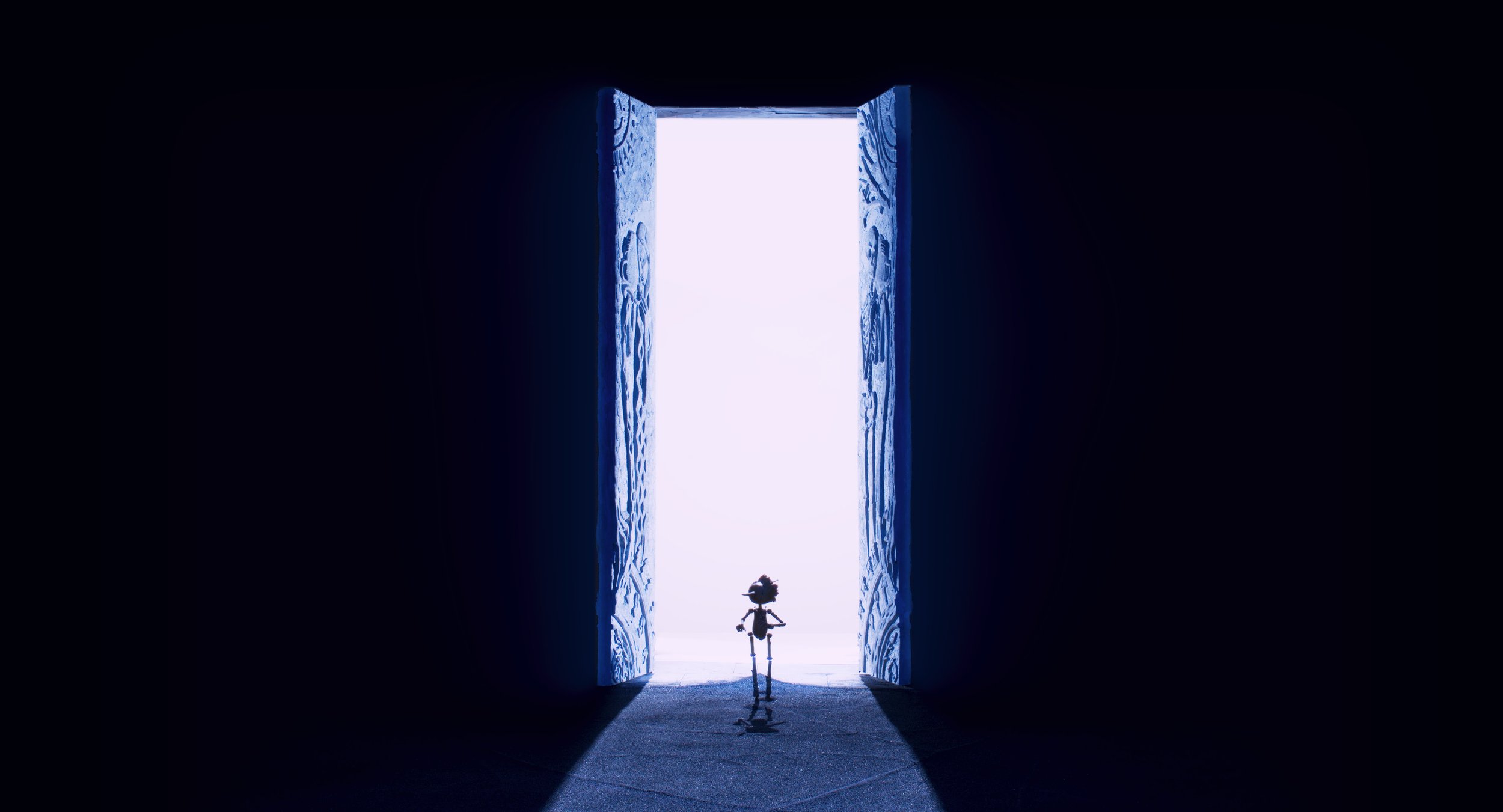"Guillermo del Toro's Pinocchio" - Netflix Film Review
Once again, the story of the wooden-boy-come-to-life finds its way to the silver screen in 2022. Co-writer and director Guillermo del Toro has been attempting to adapt the story of Pinocchio since 2008, and it's thanks to Netflix that the world finally gets to see his vision.
Like the adaptations before it, a lonely woodworker, Geppetto (David Bradley), carves a boy out of pine wood. This pine boy, Pinocchio (Gregory Mann), is brought to life by the Wood Sprite (Tilda Swinton). Tasked with guiding Pinocchio through this newfound life of his is Sebastian J. Cricket (Ewan Mcgregor), who also serves as the film’s narrator.
Cr: Netflix © 2022
As expected with del Toro, there is darkness in this version of the story of Pinocchio. The scene where Geppetto builds his wooden boy would be perfectly at home in an adaptation of Frankenstein. There’s thunder, lightning, harsh shadows, and a swinging ax. Pinocchio’s first steps are bumbling, like a baby giraffe trying to find its footing, but he’s more unnatural, unsettling. The audience is forced to reckon with what Geppetto has done by recklessly bringing a new life into this world.
The stop motion is simply stunning, a clear labor of love. This Pinocchio is not the smooth, perfect version of its Disney predecessor. He’s rough and gangly, with twisted nails sticking out of his back. The Wood Sprite, this film’s stand-in for the Blue Fairy, resembles a biblically accurate angel rather than a soothing blue aura. While there’s no deranged island of half-boys, half-donkeys, del Toro’s Pinocchio has its own grotesque twists and turns.
Cr: Netflix © 2022
del Toro’s Pinocchio is hampered by the conventions of the original fable. The wooden boy is whiny, bratty, and almost immediately unlikeable. At one point, Cricket says that he was inspired to write about “imperfect fathers and imperfect sons.” It’s a sincere sentiment, but one that is at odds with the brattiness of Pinocchio. It’s one thing for Pinocchio to be an imperfect son and another to loudly whine until he gets a mug of hot chocolate.
Given del Toro’s previous work in Pan’s Labyrinth, there was an expectation for this adaptation of Pinocchio to be more nuanced. del Toro impeccably blended the reality of the early Francoist period of Spain with a young girl’s explorations of a magical labyrinth and a mysterious fawn in Pan’s Labyrinth. In Pinocchio, the film begins as fascism began to rise to prominence in the 1930s. Instead of intricately weaving the morality fable of Pinocchio with the lead-up to World War II, the film feels heavy-handed in its approach.
There was potential here, and del Toro is more than capable of making Pinocchio a disturbing look at how fascism spread in such an insidious way. Instead, the Nazis come across as generic kids’-movie bad guys. If anyone could have brought nuance to a wooden boy coming to life and facing down Nazis, it should have been del Toro. The themes of Pinocchio wanting to make his father proud, embracing differences, and understanding the kindness of life are already perfectly antithetical to Nazi ideals. Yet, the Podestá (Christoph Waltz) comes across as no more intimidating than any generic bad guy. There is no direct critique of the hateful ideals of this group of people.
Cr: Netflix © 2022
Disney’s Pinocchio is also remembered for a few classic songs like “When You Wish Upon a Star,” “Give A Little Whistle,” and “I've Got No Strings.” del Toro’s Pinocchio is also a musical, but none of these songs will likely stand the test of time in the way Disney’s have. The newly written songs feel like afterthoughts to the film. None could have lasted more than three minutes, and the lyrics sound as though they’d been written with a rhyming dictionary. The film’s best song is hidden in the credits.
This film’s thesis centers on the beautiful tragedy that is the human condition of mortality. It’s a noble effort to explore this inescapable curse, one that is much more eloquently examined in Claire A. Nivola’s Star Child. del Toro’s Pinocchio only inserts this sentiment in the film’s final moments, so it fails to pack the emotional punch the film so desperately needs. For a film about the necessity for heart and kindness, like Robert Zemeckis’ live-action adaptation that came out earlier this year, there’s a hollowness that’s impossible to overcome.
Follow me on Twitter, Instagram, Letterboxd, and YouTube.



